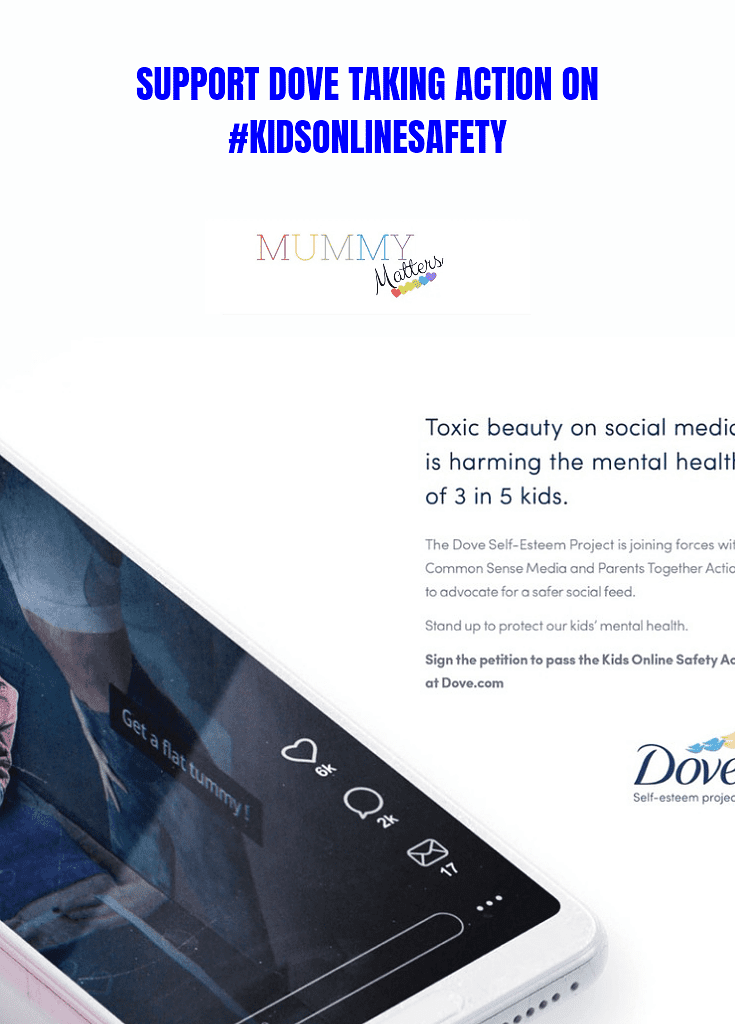Last night Lillie and I hopped on the train to London to attend the launch of Dove’s UK Campaign, taking action for #KidsOnlineSafety as part of the Dove Self Esteem Project.
The Dove Self-Esteem Project
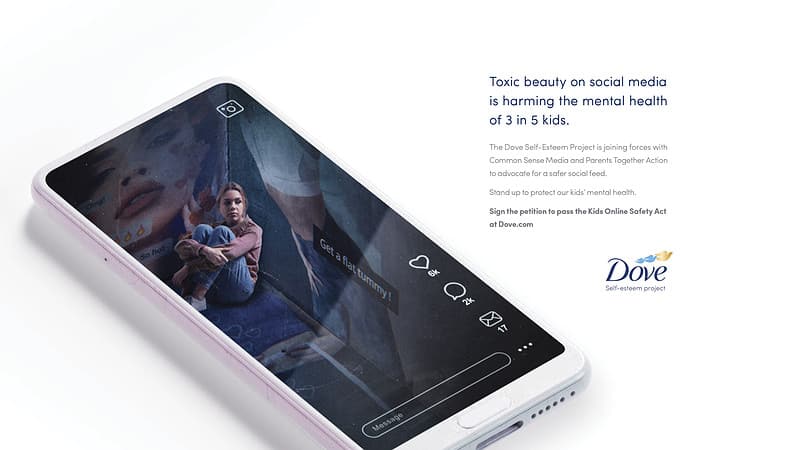
The Dove Self-Esteem Project is a global initiative encouraging young people to build positive self-esteem and celebrate their uniqueness. It is an inspiring movement that has been running since 2004, providing educational resources and tools to help young people make informed decisions about how they look and feel. The project aims to create a world where beauty is a source of confidence and not anxiety, helping young people realise their full potential.
8 in 10 youth mental health specialists say social media is fuelling a mental health crisis
Parenting Children in the Digital Age
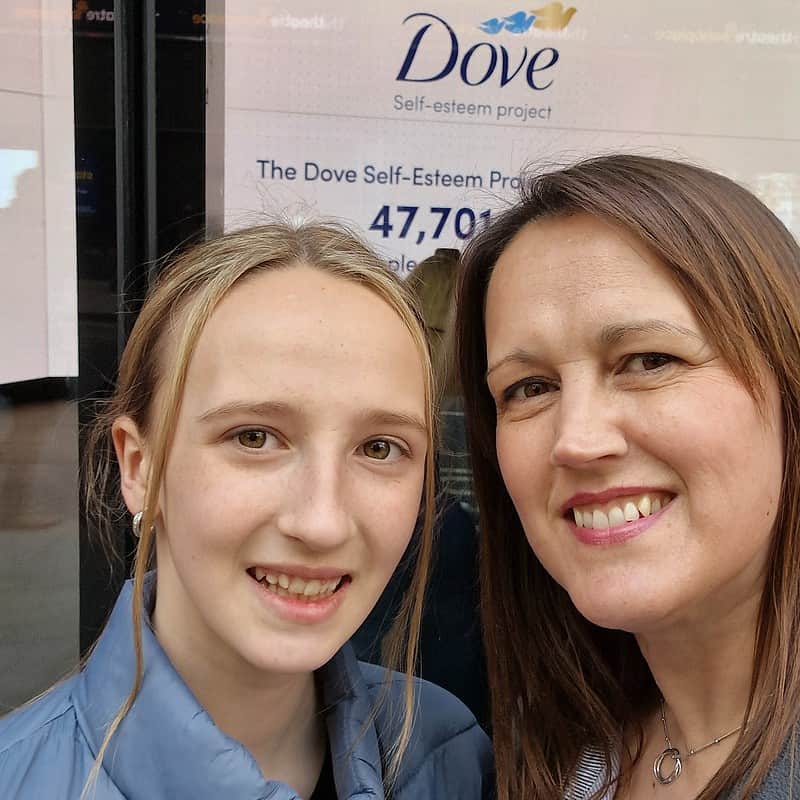
As you know, I am a Mum to three children aged 10-15 years and a step mum to a young adult. From a young age, being a Mum was one of my deepest desires; I have so much love to give, and I wanted a large family to share that with. My children are my driving force, my reason for wanting to be a better person and to make the world a better place.
Last night, a valid point was made that I genuinely hadn’t considered. We are the first generation of parents raising children in a digital age. Mobile phones were only becoming a ‘thing’ when I was in my late teens, and social media wasn’t around until much later, so my Mum couldn’t advise me how to help my children navigate it. Our generation of parents are the guinea pigs for it, so we have to stick together and support each other.
More than 50% of kids say social media makes them and their peers feel anxious
You can also head to the Dove website and download their Confidence Kit, which covers vital articles that can affect self-esteem with helpful tips and advice to boost body confidence.
Social Media – Good -v- Bad
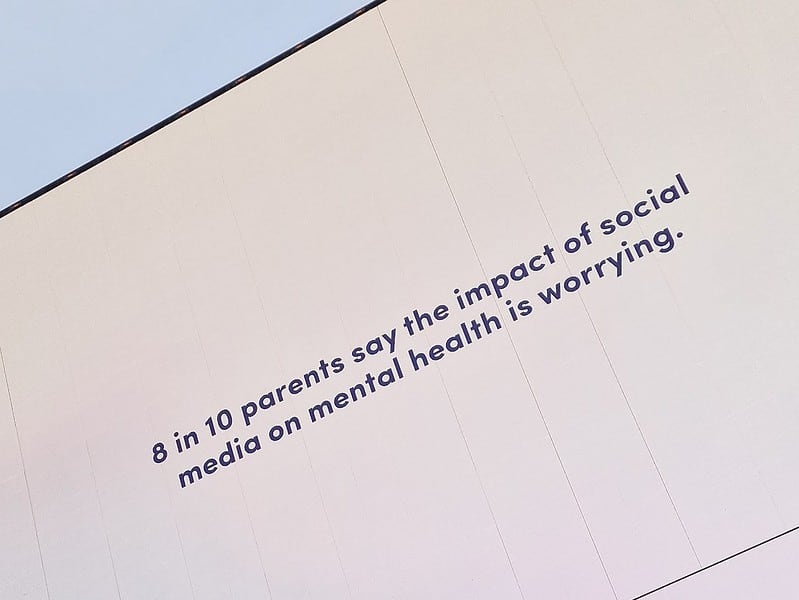
Like most things in life, there are positives and negatives around social media. As a new Mum, social media was my saviour in the middle of the night when the rest of the world was sleeping, and I didn’t know what to do with my baby who wouldn’t sleep. I connected with other Mums in the same boat to get support and advice. Even today, social media is the place I often turn to for help from parents and professionals on topics that my immediate support network isn’t equipped to deal with.
During the lockdowns, social media was a way for us to stay connected to friends and family far and wide; it made things a little easier to cope with.
But what about the negatives? With a teenage daughter and two tween boys, I am now amid a new realm in parenting that can be daunting. Mobile phones and social media! A new world has opened up to them, where not all are helpful or healthy. Now they don’t just compare themselves to their peers in the classroom but to the world at their fingertips. Beauty brands, influencers and friends constantly post about making yourself look thinner, sexier, older, more glamorous, more this, less that – it never stops. Then the algorithms show them more of the same, bombarding them with images of ‘perfection’.
Bullying no longer stops at 3 pm with the school bell; it can continue at all hours of the day via their phones. It is all-consuming and relentless, and it’s no wonder that poor mental health among children is on the rise.
9 in 10 youth mental health specialists say exposure to harmful beauty content on social media can lead to physical consequences, like disordered eating or self-harm
Dove Panel for Change
Our evening began last night with this video highlighting how relentless social media can be. It was a really simple yet powerful way to demonstrate what our children (and we) see when logging into our phones and begin scrolling.
The panel was hosted by Candice Brathwaite – a blogger, author, journalist, present and Mum of three. First, Candice spoke with three young ladies, all Girlguiding leaders, who shared their social media experience and the moments that stood out for them. One was a young girl who, whilst at Secondary School, was pulled into the toilets for a ‘makeover’ she didn’t ask for or agree to. She was then posted all over social media saying how beautiful she was because she’d had a makeover – was she not beautiful before?
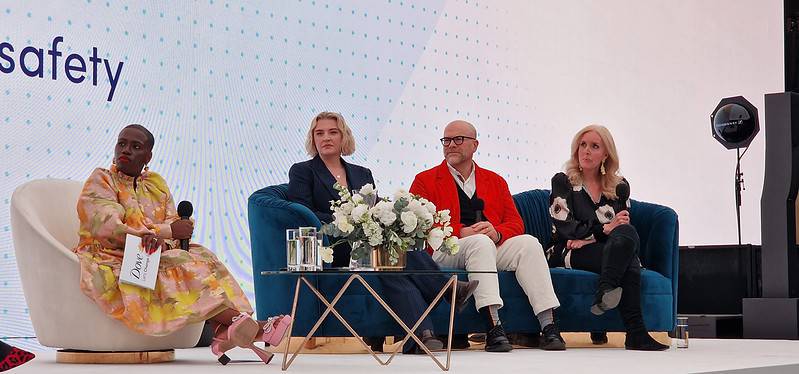
Later Candice spoke with industry leaders and changemakers from Dove, Maudsley Charity, Global Action Plan, 5Rights, Parenting Mental Health and UK Singer Self-Esteem, who provided the vocals for Dove’s Cost of Beauty short film for the Dove Self-Esteem Project.
As part of their #KidsOnlineSafety campaign Dove will fund access to mental health resources and support organisations working to improve young people’s mental health and make social media safer at the design level. Specifically:
- Dove will fund the world-leading Pears Maudsley Centre for Children and Young People in partnership with Maudsley Charity. This new facility will protect the mental health of some of the UK’s most vulnerable young people experiencing anxiety, depression, self-harm, and eating disorders. The Maudsley Charity’s Change the Story campaign supports the new Centre’s work.
- In partnership with Parenting Mental Health, Dove will make access to support services and advocates more accessible for parents whose kids are navigating mental health challenges.
- Dove will support organisations like Global Action Plan, 5Rights, Girlguiding and Parenting Mental Health, raising awareness of harmful features on social media to encourage new design standards that will make social media safer for kids.
Cost of Beauty
As part of the campaign, Dove is releasing a new film, Cost of Beauty: A Dove Film, that explores the real-life consequences of harmful beauty content to raise awareness and inspire collective action to make social media safer. Set to the song “You Are So Beautiful”, performed by singer/songwriter Self Esteem, the film offers a glimpse into the lives of young people, like Mary, coming of age with social media today. From overcoming depression to body dysmorphia, we see first-hand the toll toxic beauty content takes on their wellbeing.
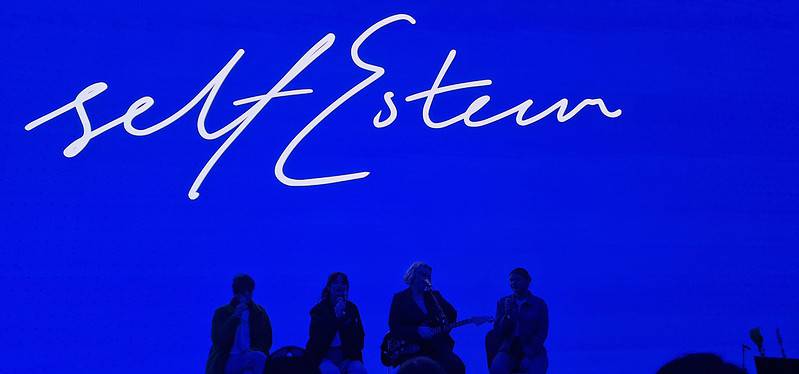
“My default feeling for as long as I can remember has been one of inadequacy. It was burned into my mind even before social media, and it has successfully compounded it. It can keep women in a constant state of comparison which they can never live up to, holding us back and stopping us grow,” “I am proud to work with Dove to change the conversation. The warped view of my own appearance will never match my authentic inner belief in myself. My goal is to begin to close the gap, for myself and others.”
Singer/songwriter Self Esteem.
You can help – please sign the Petition
Too much of the media and public debate around social media pins the blame on individuals, suggesting it is girls’ – or their parents’ – fault for spending too much time online or watching things they shouldn’t. But that misses the point – social media is designed and intended to be addictive, making it almost impossible to control our online experiences. We shouldn’t have to navigate our way to safety online; instead, social media should be safe by design.
The mental health of kids depends on it
Dove is using their platform to encourage their community to sign this petition to make a difference. Alongside this, Dove will fund access to mental health resources and support organisations working to improve young people’s mental health and make social media safer at the design level.
